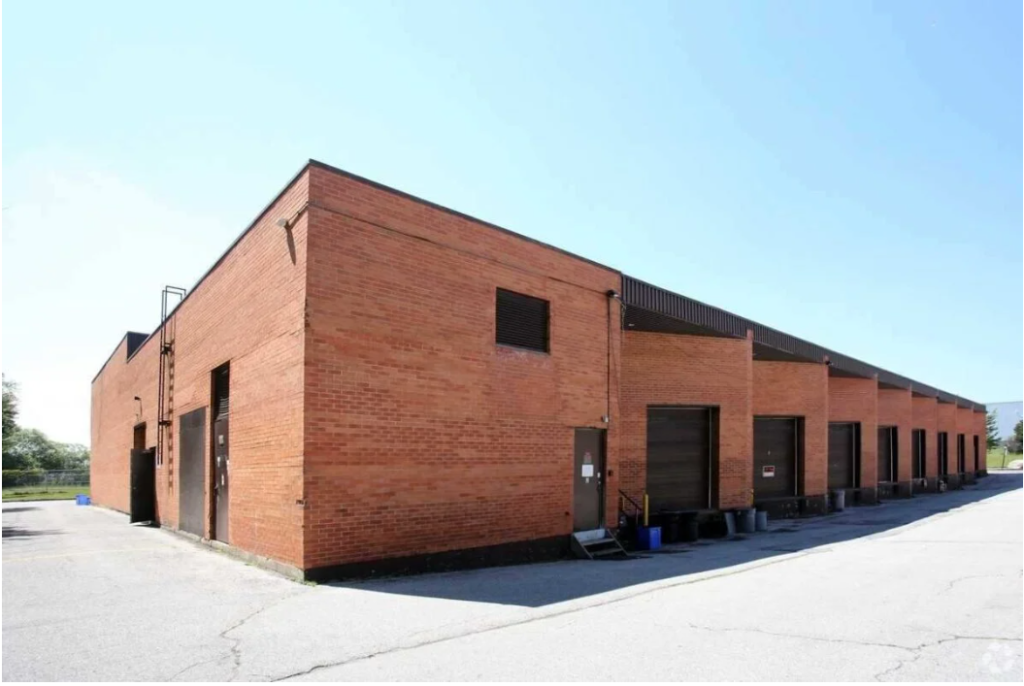Industrial Space for E-Commerce Businesses

Industrial Properties for E-Commerce Business
Industrial space for e-commerce businesses refers to commercial real estate that is used specifically for the storage, processing, and distribution of goods related to e-commerce operations. This type of industrial space typically includes warehouse, distribution center, and fulfillment center facilities, and can range from small, local facilities to large, multi-level buildings.
Industrial space for e-commerce businesses is designed to support the needs of e-commerce operations, which can include:
- Storage: Adequate space for storing inventory and raw materials, including shelving and racking systems.
- Processing: Space for processing and preparing orders, including packing stations, conveyor systems, and automated storage and retrieval systems.
- Shipping and Receiving: Adequate space for receiving and shipping goods, including loading docks and shipping and receiving areas.
- Office Space: Space for administrative and management functions, including offices, conference rooms, and break rooms.
- Logistics: Space for logistics operations, including vehicle storage and maintenance areas.
In summary, industrial space for e-commerce businesses is designed to meet the specific needs of e-commerce operations, including storage, processing, and distribution of goods, as well as office and logistics functions.
Top of Form
The growth of e-commerce warehouse space in North America can be attributed to several factors, including:
- Increase in Online Shopping: The rise of online shopping has driven the need for more warehouse space to store and distribute goods. As more people choose to shop online, e-commerce companies require larger and more efficient warehousing operations to meet demand.
- Advancements in Technology: Advancements in technology such as automation, robotics, and the Internet of Things (IoT) have made it easier for companies to manage and optimize their warehouse operations. This has led to the development of more efficient and cost-effective warehousing solutions, further driving the growth of e-commerce warehouse space.
- Rise of Last-Mile Delivery: The growing popularity of last-mile delivery, which involves delivering goods directly to consumers’ homes, has increased the demand for warehouse space in urban areas. This is because urban warehouses are closer to the end customer, reducing delivery times and costs.
- Increased Competition: The growth of e-commerce has led to increased competition among companies, leading many to seek out more warehousing space to gain an advantage. Having a larger and more efficient warehouse can help companies process orders more quickly and provide better customer service.
- Economic Growth: The overall growth of the economy in North America has also contributed to the growth of e-commerce warehouse space. As the economy improves, consumers have more disposable income to spend on goods and services, further driving the demand for e-commerce warehousing solutions.
Micro fulfillment centers (MFCs) are small, automated warehouses designed to support the growth of e-commerce by enabling retailers to fulfill online orders from local stores or smaller facilities located closer to customers. They are typically less than 50,000 square feet in size and use a combination of technology, such as automation and robotics, to maximize efficiency and speed.
The use of micro fulfillment centers has had a significant impact on e-commerce operations, including:
- Faster Delivery Times: By locating micro fulfillment centers closer to customers, retailers can fulfill orders much more quickly, reducing delivery times and providing a better customer experience.
- Increased Inventory Flexibility: MFCs allow retailers to store inventory in multiple locations, enabling them to respond quickly to changes in demand and reduce the risk of stock shortages or overstocking.
- Improved Order Accuracy: Automation and robotics used in MFCs help to reduce errors and improve order accuracy, leading to fewer returns and increased customer satisfaction.
- Increased Capacity: MFCs provide retailers with additional warehousing capacity, enabling them to fulfill more orders without having to invest in larger, centralized fulfillment centers.
- Lower Costs: By using smaller facilities and automation, MFCs can offer a more cost-effective solution for fulfilling online orders compared to traditional warehousing methods.
Overall, the growth of micro fulfilment centres has helped retailers to adapt to the growing demand for e-commerce by providing a flexible and efficient solution for fulfilling online orders.
If you have questions about buying or selling industrial real estate for E-Commerce businessesthen you are in the right place. Don’t hesitate to call Frank at 416-899-3308/ Dickens 647-549-0308 and arrange a time for a consultation session. Their door is open and are ready, willing and able to help you with your real estate issues. You can also e-mail us using the contact form below
